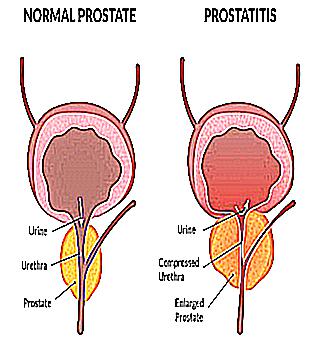Home >
Erectile Dysfunction >
How to diagnose prostate cancer Experts discussed diagnostic methods
How to diagnose prostate cancer. Experts discussed diagnostic methods

Frequent swelling
According to statistics, in the Chelyabinsk region over the past ten years, the incidence of Prostate cancer has doubled to 16%. Among the male population, she came in second place, the leader in the number of cases is lung cancer.
"Prostate cancer is the most common malignant tumor of the genitourinary system in men and, as a rule, is detected at the age of over 50. The risk of the disease increases if prostate cancer was previously detected in first-degree relatives (brother and / or father) , a germinal mutation in the BRCA2 gene is determined, and a man also eats food with a high content of animal fats, "said a leading researcher at the Department of Oncourology of the N.N. N.N. Blokhina, doctor of medical sciences Maria Volkova.
Early diagnosis is essential
Among experts, there have been discussions for a long time about screening for prostate cancer. "Screening involves the conduct of diagnostic tests in people who do not have symptoms of the disease, to identify the early stages of the disease and early treatment to reduce mortality," said Maria Volkova.
She said that screening for this tumor using a digital examination and determining the level of prostate specific antigen in the blood was ineffective. Therefore, its use is recognized as inappropriate in most countries, including the US and EU countries.
"But this does not exclude the need for early diagnosis of prostate cancer in risk groups, including the relatives of the sick, as well as the preservation of oncological alertness among doctors who are contacted by patients with complaints that may be associated with the development of this disease." , - noted the need for screening in risk groups Maria Volkova.
Conditions for treatment
The Chelyabinsk Regional Clinical Center for Oncology and Nuclear Medicine emphasized that the center has created all the necessary conditions for the diagnosis and treatment of all malignant neoplasms of the genitourinary system, including prostate cancer. Each of the methods (surgical treatment, radiation therapy and anticancer chemotherapy and hormone therapy) is being improved and developed every year, giving patients more and more chances to improve the quality and increase life expectancy.



























